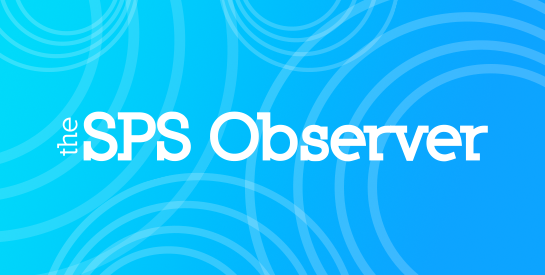This Summer, Take Time to Focus on Your Future

SPS Observer.
A PhD graduate recently told me that she spent so much time doing physics and astronomy that she didn’t think about what she wanted to do with physics and astronomy until well into graduate school. Don’t wait that long. Summer is the perfect time to consider where you’d like to go with your degree and how to get there. Here are five ways to focus on your future before the fall semester begins.
Spend time dreaming
Forget where you should be in 10 or 15 years—where would you like to be? What do you hope your day-to-day tasks will involve? Do you see yourself at a computer, in a lab, in front of a classroom, or on the factory floor? In a boardroom, courtroom, or recording studio? What kind of work environment would suit you best?Allow yourself to dream and see what happens. If you need help getting started, browse through the Fall 2024 issue of the SPS Observer or the many alumni and hidden physicist profiles on the SPS website. Then take stock of your dreams and the possibilities you might want to explore in the coming year.
Explore opportunities
Between conferences, internships, research experiences, and awards, there are lots of opportunities for physics and astronomy students. You might not remember to explore them when exams and papers are piling up, so get started this summer. And consider setting a reminder to review opportunities regularly, such as monthly or quarterly.Not sure where to begin? Search for opportunities related to what you’re dreaming about—research, teaching, engineering, outreach, or whatever it may be. Here are some places to start.
-Visit the SPS website and browse the awards section of the SPS Observer. Look into JURPA and upcoming meetings (like the Physics and Astronomy Congress and nearby zone meetings), as well as the societies that partner with SPS and SPS Jobs.
-Visit the websites of other professional societies, like the members of the American Institute of Physics federation (aip.org/member-societies) or the professional societies in biology, chemistry, medicine, science writing, or wherever your interests lie.
-For internship and research opportunities, check out the SPS internship program, SPS Jobs, undergraduate summer programs at the National Science Foundation (nsf.gov/funding/initiatives/reu) and Department of Energy (science.osti.gov/wdts/suli), and specific institutions or fields that interest you.
Many applications won’t be open yet, so make a list of opportunities to revisit or to apply for each month and set calendar reminders.
Write or update your resume
If your basic resume (or CV) is up to date and ready to go, you’ll thank your summer self when it comes time to apply for those opportunities.
Heather Whitney Headshot.
Mike Sansone Photography
Heather Whitney, a research medical physicist and professor of radiology at the University of Chicago, recommends a three-pronged approach to getting that first draft finished.
Start by writing down what you’ve done. It sounds simple, she says, but sometimes students wonder whether they’ve accomplished enough to even write a resume. Don’t dwell on that. Instead, Whitney recommends treating it like a physics problem. “Just get started.”
Next, familiarize yourself with the basic sections of a resume and fill them in. According to Whitney, sections such as contact information, education, work experience, and skills are expected whether you’re applying for an internship, research position, job, award, or anything else. You might also include sections like courses, outreach experience, awards, or professional service, if they’re relevant.
And finally, let who you are shine through. “Take some time to explain yourself,” Whitney says. By adding a well thought-out resume objective or summary statement and being intentional about how you organize your resume, you can give readers a sense of who you are. Are you resilient? Deadline-focused? Motivated? Your resume should reflect those qualities.
Identify gaps in your preparation
Once you have an up-to-date resume, look for the holes. Consider what you’d like to do and where your current experience and skills fall short.
Sesha Srinivasan Headshot.
Your resume “has to be built brick by brick,” says Sesha Srinivasan, a longtime physics professor turned patent examiner. If you’re missing an important skill or experience, what opportunity would help fill that gap?
Revisit your opportunity list and add options if you need to fill any gaps. Then identify your resume-building priorities for the coming year. As Srinivasan says, the things you spend your time on add up to your resume.
Set yourself up for success by looking good on paper
Identify one or two specific opportunities you’d like to apply for in the coming year. Make a copy of your basic resume, then play around with the wording, formatting, and skills you emphasize, targeting your resume to that opportunity. It’s essential to customize your resume for each individual opportunity, Srinivasan says.For example, if you plan to apply for an experimental condensed matter research experience, you’ll want to highlight different skills and experiences than you would if you were applying for an engineering co-op. If you plan to apply for both, you’ll want two different versions of your resume.
It takes time to customize a resume, but the more you practice now, the better you’ll be at crafting resumes that stand out from the pack. And the better equipped you’ll be to get that application in despite a crazy semester.
Rest, grow, play, and spend some time investing in yourself this summer. You’re worth it.




